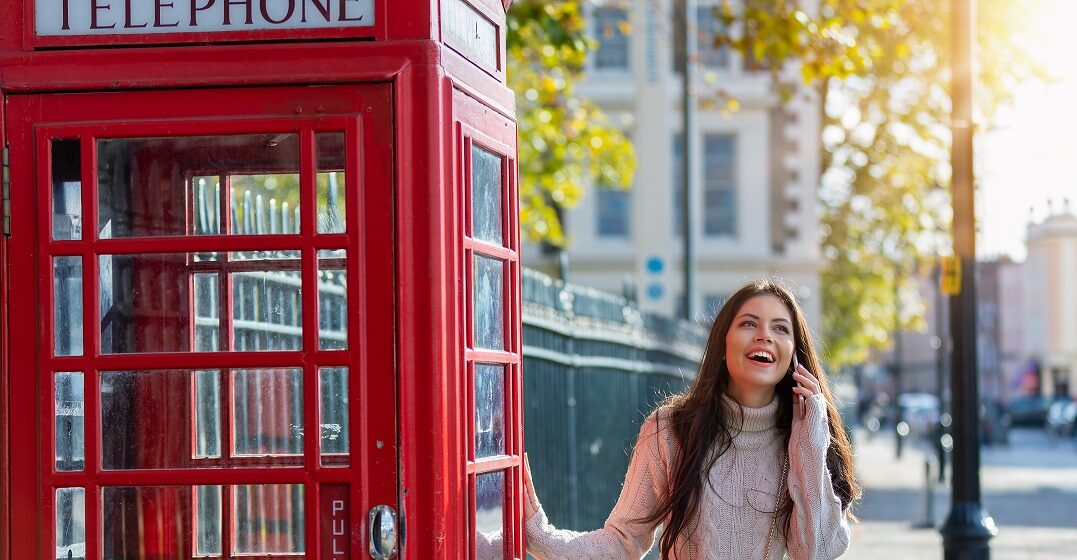by Laura Jones
Updated on January 10, 2024
Have you noticed that, no matter how good your English is, when you meet someone from the UK you don’t always fully understand them? Are they really speaking British English or are they using typical British slang?
It’s said that English is easy to learn but difficult to master and this could not be truer than when speaking to a native Brit. That’s partly because we Brits have slang coming out of our ears, to so speak. So, let’s learn some and next time you meet a British person, you won’t miss out on a knees-up.
We kick off with one of the most British expressions, which refers to a lively and informal party involving drinks and a great amount of dancing. We guess at one point it was cool to dance with your knees up.
Simply another way of saying “there you go” or “job done”. In some respects, you could think of it similarly to what the French convey using voilà! It is said, though not confirmed, that this expression finds its origins in an unusual act of nepotism when conservative Prime Minister Robert Gascoyne-Cecil charged his nephew Arthur Balfour as Chief Secretary for Ireland in 1887.
When you “bodge” something or do a bodge job, you repair something in an amateur or bad way. And the results show it.
This means very crowded or busy. It’s often shortened to chocka.
On a busy Friday night at the pub, you might hear: “Woah, it’s chockablock in here, we’ll never get to the bar“. Or, on a commuter train at 5pm: “There are no seats, it’s chocka.”
A chat. Brits love having a bit of a chinwag over a pint of beer. It might come from the fact that your chin moves when you speak. But does your chin actually wag? This is quite an informal word and is used commonly in the north of England.
Something that is extremely expensive would cost you a bomb in the UK.
When showing someone your new home, it would be great to hear: “This house is beautiful, it must have cost a bomb!” Or, sadly true: “A pint of beer costs a bomb in London.”
This word means messing around and taking an unnecessary lot of time to achieve nothing eventually. So as you’re laying on the sofa scrolling through Instagram you might hear:
Or, it’s true to say that getting onto a plane with a baby is always a faff.
This means the most or the best you can get or going to the limit. You can use it also when you talk about anything that is necessary or possible. You’ll often see it on menus in cafes for an English breakfast.
The full monty in that case would be sausage, bacon, eggs, beans, tomatoes, toast, black pudding, mushrooms and a cup of milky tea. Heaven.
The origin of this expression might refer to the state of horses, which fed on beans, would be more energetic. You can use this phrase to talk about someone full of energy and enthusiasm.
You would be full of beans also if you ate a tin of the famous British ones for breakfast every morning. Some people, finally, say this comes from the energy you get from coffee beans, but that’s disputed.
We are going with Heinz.
Meaning: to go wrong.
This phrase is thought to come from the fact that a circle is a perfect shape, and when it goes wrong it looks like a pear.
In football, you might hear: “When Davis got a red card it all went pear-shaped.”
You can understand from this that Davis was the glue holding the team together.
Or, in one word: pajamas.
One of my favorite things to say at 6pm on a Friday evening.
However, if you still have not put those jim jams on you are possibly considering going on a bender, meaning having a long (alcohol) drinking session.
In the US, this is referred to more commonly as Murphy’s Law. Basically, it means that if something can go wrong, it will.
To be heard in pubs across the nation, your round means your turn to get the drinks for everyone. It’s common in the UK to buy drinks in rounds, so if there are four of you, you will end up drinking four pints altogether.
If you’re not a big drinker, you might want to get out of buying rounds before you hear: “Oi, Alex, your round! Bar’s that way.
Hopefully next time you find yourself having a chinwag with a real, live British person, you’ll be able to understand them a little better. You might even be able to surprise them and use a little slang of your own.
